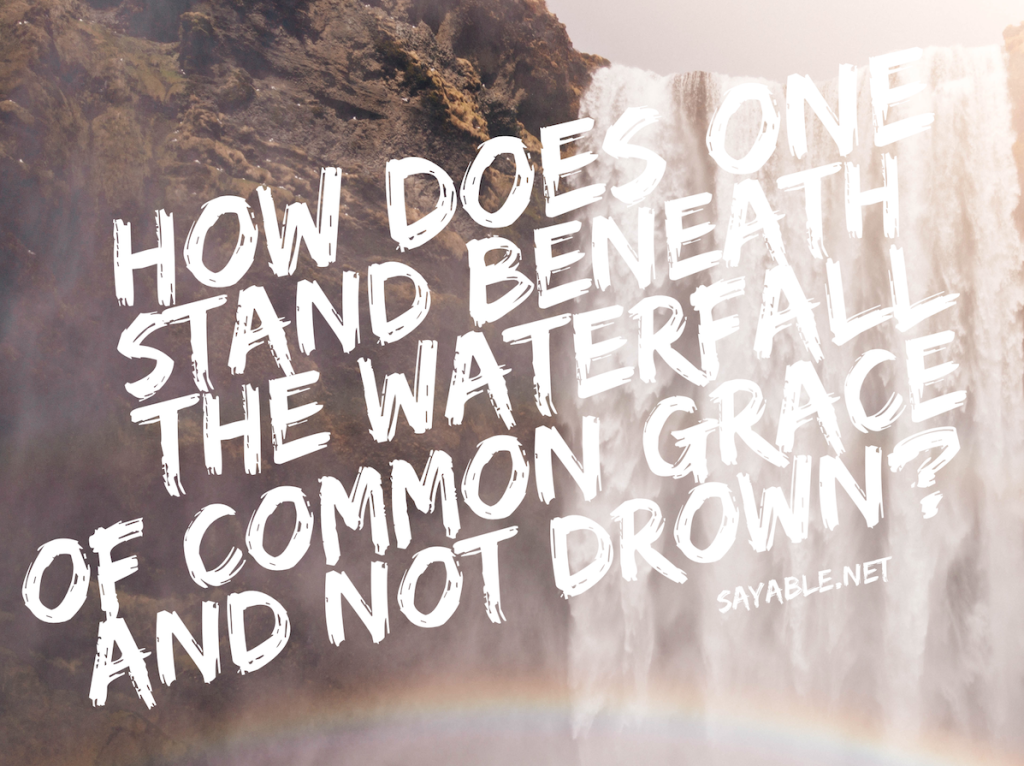The Non-Coffee-Date and Trusting God, Not Man.
It's a joke now, lovingly called the "Non-coffee-date," which syntactically makes no sense but we know what it means. Whenever we tell people our story (three months from first date to wedding date) their incredulity is visible: "But did you even know each other before?" Yes, of course we did. But we knew each other in contexts in which dating one another for various reasons wasn't happening. We had overlapping friend groups that eventually morphed into one. He was well known by men I trusted, I was well known by men he trusted. I cheered for him when he'd taken a friend out on a few dates. We had no reason to do anything but cheer one another on in our individual pursuits.
But then: the non-coffee-date in which we did drink coffee and it was not a date.
We spent two hours in our community's coffee shop, in full view of any frequent church staff customer and no fewer than 30 of our closest friends walking in and out the door. The purpose of the meeting was to continue a conversation we'd been having about pacifism (Sexy, I know.). I'd fought with one of my friends the night before because she wanted me to clarify with him whether this was a date, but I felt this deep confidence in me that God was my Father and he cared for me. I knew Nate was a good man and I had confidence that if it was a date, or he wanted a date, he would ask me, using his mouth, and words straight from the English language. It was just coffee.
At the end of it, he cleared his coffee cup and I cleared mine and he left. "Did he ask you out at the end?" a friend asked. Nope, I said. And then I went home.
Several weeks went by without communication and then a big decision was made by me to move to Denver. The night I came home from my interview trip to Denver, Nate called (on the phone, using words he said with his mouth) and said, "I'd like to take you to dinner. I'd like it to be a date."
And you know the rest of the story.
I'm telling you this, not just my single girl friends, but my married girl friends too, because so often we grasp for control, clarification, communication. We want to know all the moving parts, all the possibilities. We want to plan for every contingency and every system failure. We want faith that is not blind, we want to see every crack and crevice of the future.
But that's not, as a friend of mine said once, real faith. Faith isn't faith if it can see where it's going. Even that statement fails a bit because if you're a child of God you do know where this is all going, even if you can't see it.
Single girls, don't manipulate and scheme the single guys in your lives. Trust God that when a man sees and knows and trusts God with you, he will do the right thing. It might mean a non-coffee-date or two (if he makes it seven or ten, it's not bad to ask for clarification, just don't demand he call it something it's not—that's bad for you and bad for him.), but trust God with the outcome. Be faithful, obedient, gospel yourself, and then trust God.
Married girls, trusting your husband isn't the goal. It's a means for some things, but not the goal. The goal is to trust God and the overflow of trusting God is trusting your husband. If you feel he has broken your trust, look to God. If you feel he has never given you reason to trust him, look to God. If you just want him to do something, trust God.
All my readers, if you are a child of God, don't play chess with today. Don't wake up and scheme how you'll defeat the enemies of your life. Christ already has. He has defeated depression. Discouragement. Confusion. Fear. Worry. Discontent. Sadness. Loneliness. Christ declared His intentions for you before the foundation of the earth. He called you His. Therefore you are secure, chosen, holy, set-apart, a royal priesthood, saints, sons, and daughters. There is no question. Walk today as if there was no question.
He has also made a plan for work that doesn't fulfill you, a husband or wife who doesn't complete you, a local church that doesn't seem to see you, friends who don't seem to care enough about you, and every other disappointment you feel. His plan is Himself. If He gives you nothing you desire today, it is not because He wants you to lack, but because He wants to give you Himself. Trust Him.
“There is not a square inch in the whole domain of our human existence over which Christ, who is Sovereign over all, does not cry, Mine!” — Abraham Kuyper














